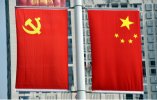- Date
- 1 December 2021
Dimon Walks Back From CCP Jab
Dimon Walks Back From CCP Jab
By Jake Rickman |
What do you need to know this week?
Jamie Dimon, the CEO of US megabank JPMorgan Chase & Co (JPMorgan), has apologised twice for his joke about the Chinese Communist Party (CCP).
As part of a recent speech that he gave to business leaders, he noted that JPMorgan and the CCP were both celebrating their 100th anniversary this year, quipping that JPMorgan would outlast the CCP.
Though China has not publicly commented on Dimon’s quip, the fact that Dimon has issued not one but two apologies is significant. More than a PR disaster, the risk is that Dimon’s gaffe could jeopardise the future of the bank’s Chinese operations.
Why is this important for your interviews?
The gravity of Dimon’s gaffe brings to the surface all the complexities of China’s relationship with foreign investors. If you can explain this relationship, it will signal to interviewers that you have a keen understanding of geopolitics, business, and finance.
For global investors, China is a conundrum. On the one hand, it is the best performing emerging market globally because of its rapid growth and industrialisation. This means that investors often find more opportunities for higher returns than in “mature markets” such as the US and Western Europe.
But, on the other hand, the nature of China’s economy, which is a unique blend of free-market capitalism and government-directed central planning, makes it difficult to do business in mainland China without the backing of the CCP.
In general, foreign investors are not allowed to own their mainland operations outright. Instead, they must partner with state-run companies that own half the operations. This joint control means investors have less flexibility.
In August, JPMorgan became the first foreign owner of a securities firm in China, having won approval from the Chinese government to buy out their Chinese state-run counterpart. This was a watershed moment in the history of China’s market liberalisation.
Dimon has likely issued the two public apologies in an effort to avoid the ire of the CCP. If the CCP react as they have in the past (see UBS), it might derail the substantial time and money JPMorgan has invested in China.
How is this topic relevant to law firms?
Given that lawyers play an essential role in negotiating and closing deals in China, it follows that those firms which can command expertise of the local customs and advise their clients on how to best navigate the CCP can add substantial value to their clients’ Chinese operations.
Therefore, as more banks like JPMorgan and asset managers like BlackRock gain full access to mainland China, global law firms like White & Case and Dechert are keen to secure their position in mainland China.
At the same time, not all of those in the legal profession are as keen to embrace the CCP. Some have even taken a stand.

